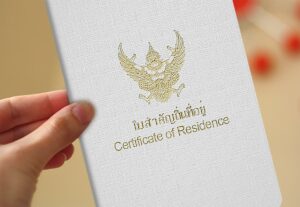Escrow accounts in Thailand is a secure financial tool used in real estate transactions, mergers, and other significant business dealings. This account is managed by a neutral third party, known as an escrow agent, ensuring that the conditions of the transaction are met before funds are released. Escrow accounts help protect both the buyer and the seller from fraud and contractual breaches, offering a layer of security in high-value transactions.
1. Legal Framework for Escrow in Thailand
The establishment and management of escrow accounts in Thailand are governed by the Escrow Act B.E. 2551 (2008). According to this law, only licensed financial institutions or law firms can act as escrow agents. The act defines the rights and responsibilities of both parties and the agent, ensuring that the agreement is honored.
The Ministry of Finance, along with the Bank of Thailand, oversees escrow services to ensure legal compliance. The escrow agent must be a neutral entity, safeguarding the funds or documents in question until all contractual obligations have been met.
2. Common Uses of Escrow Accounts
Escrow accounts are primarily used in the following transactions in Thailand:
a) Real Estate Purchases
In property deals, particularly for foreign buyers, escrow accounts play a vital role. The buyer deposits the purchase price into the account, and the funds are only released to the seller once all conditions, such as the transfer of the title deed, are fulfilled. This protects both the buyer and seller from potential fraud or disputes.
b) Business Transactions
For mergers and acquisitions, escrow accounts are often used to ensure the proper exchange of assets, intellectual property, or shares. The buyer may deposit the payment into an escrow account, which is released once due diligence is completed and contractual terms are met.
c) Construction and Development Projects
In construction, particularly with off-plan real estate, developers may use escrow accounts to manage funds from buyers, releasing payments only as the project reaches agreed-upon milestones. This arrangement protects buyers from project delays or incomplete construction.
3. The Role of the Escrow Agent
The escrow agent is a neutral third party responsible for holding the funds or documents involved in the transaction until both parties meet the terms of the agreement. The agent’s role includes:
- Safeguarding funds or documents until conditions are fulfilled.
- Verifying the fulfillment of contract obligations (e.g., title transfer in real estate).
- Releasing funds or property once the agreed terms are satisfied.
- Providing impartiality to both the buyer and seller, ensuring fair dealing.
4. Steps Involved in Using an Escrow Account
a) Establishing the Escrow Agreement
The first step is to establish a formal escrow agreement between the parties involved, outlining the conditions under which the funds or assets will be released. This document is essential, as it specifies the obligations of the buyer, seller, and escrow agent.
b) Depositing Funds or Documents
Once the agreement is signed, the buyer deposits the agreed-upon funds or the required documents (such as property deeds) into the escrow account. The agent holds these securely until both parties have fulfilled their contractual obligations.
c) Completion of Conditions
The escrow agent monitors the transaction, ensuring that all conditions are met. In a property deal, this would involve the transfer of the title deed, completion of construction, or legal clearance of the property.
d) Release of Funds
Once all conditions have been satisfied, the escrow agent releases the funds or assets to the appropriate party. If there are disputes, the agent may retain the funds until a resolution is reached.
5. Costs and Fees Associated with Escrow Services
The cost of using an escrow service in Thailand typically ranges from 0.5% to 1% of the total transaction value, depending on the complexity of the deal and the amount held in escrow. These fees are usually shared between the buyer and the seller, although specific terms can vary based on the agreement. While escrow accounts provide security, the additional costs must be factored into the overall transaction.
6. Advantages of Using Escrow Accounts
a) Risk Mitigation
Escrow accounts significantly reduce the risk of fraud or disputes in large transactions. Funds are only released when both parties meet the contractual conditions, ensuring fairness.
b) Neutrality
Escrow agents offer impartiality, providing a secure mechanism for holding funds or assets during the transaction. This builds trust between the buyer and seller.
c) Legal Protection
Because escrow accounts are regulated by Thai law, they provide an added layer of legal protection, particularly in complex deals involving multiple parties or significant sums of money.
7. Challenges and Considerations
a) Choosing a Licensed Escrow Agent
It is essential to work with a licensed escrow agent. Not all banks or financial institutions in Thailand offer escrow services, and unlicensed agents can pose significant risks. Parties must verify the credentials of the agent before entering into an escrow agreement.
b) Clear Terms in the Escrow Agreement
A well-drafted escrow agreement is vital. It should clearly outline the conditions for the release of funds or documents to prevent misunderstandings. Without precise terms, the process can lead to delays or disputes.
c) Costs and Time Considerations
While escrow accounts provide security, they come with associated costs and can add administrative time to the transaction. Parties must weigh these factors against the level of protection offered.
Conclusion
Escrow accounts in Thailand offer a robust mechanism for securing high-value transactions, particularly in real estate and business deals. By ensuring that funds or assets are held by a neutral third party, escrow accounts reduce the risk of fraud and ensure that contractual obligations are met before releasing money or property. Although the process incurs additional costs and requires careful planning, the legal protection and security provided make it a vital tool for both foreign and domestic investors in Thailand.
You might also enjoy

Thailand Permanent Residency
Thailand Permanent Residency (PR) is a highly sought-after immigration status

Child Custody in Thailand
Child custody in Thailand is governed by the Civil and

Mergers and Acquisitions in Thailand
Mergers and acquisitions in Thailand mix standard deal mechanics with


